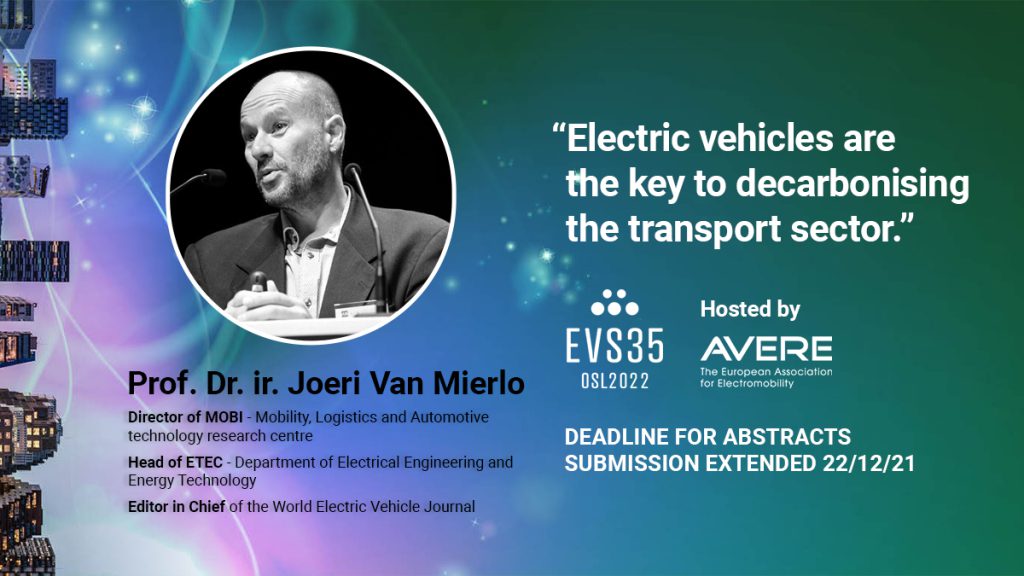Deadline of Abstract has now expired.
The EVS35 scientific program will include more than 150 lectures over the course of three days, addressing various complex topics, presented by leading global e-mobilty researchers.
Submitted abstracts will be peer reviewed by a scientific committee. Authors of accepted abstracts will be invited to submit a full paper of their work. The papers will be selected for either a scientific session (presentation) or dialogue session (poster) at the EVS35.
The authors of the best papers presented at EVS35 will be invited to further extend their EVS35 paper, including their most recent research findings. After a second thorough round of review, these papers will be published in a Special Issue of the World Electric Vehicle Journal.
If you have any questions, please email: scientific@evs35oslo.org
Important dates
| Call for abstracts opened | September 1, 2021 |
| Abstract submission deadline | December 22, 2021 |
| Notification of acceptance | February 28, 2022 |
| Deadline for full paper submission | April 30, 2022 |
Key Areas 2022
Charging/
fuelling
Electric
drive
Market
development
EV
technology
EV
policy
Smart renewable
energy
Full list of topics
- Passenger cars
- Medium and heavy-duty vehicles
- Micro mobility, including two- and three-wheel vehicles
- Public transportation (incl. bus & tram)
- Shared and autonomous mobility
- Other vehicle technology and applications
- Battery electric vehicles
- Plug-in hybrid vehicles
- Fuel cell vehicles
- Batteries
- Battery management system
- Super capacitors
- Fuel cells
- Electric motor
- Propulsion systems (motor & motor electronics)
- Telematics and auxiliary electric drive systems
- Conductive charging infrastructure
- Ultra-fast charging infrastructure
- Hydrogen fueling infrastructure
- Charging/refueling standardization and interoperability
- Wireless charging infrastructure
- Infrastructure deployment case studies
- Demand management
- Business models
- Automotive format batteries in energy storage
- Grid implications of DC fast charge and ultra-fast charging
- V2G, V2X and connectivity advances
- Utility project deployment case studies
- Market development strategies
- Consumer demand growth, including education, demonstration, and motivation analysis
- Global strategies for market development
- Fleet vehicle deployment case studies
- National and international electric drive policies
- State level initiatives
- Local and regional partnerships
- Government project deployment case studies
- Multimodality
- Fleet management
- Environmental benefits of EVs and E-mobility
- Supply chain analysis: Materials, manufacturing, recycling / re-use
- Energy security
- Social impact of electric mobility analyses
- Batteries for aviation
- Charging and fueling system for aviation
- Drones and other aviation concepts
- Batteries for maritime
- Fuel Cells for maritime
- Onshore power supply


